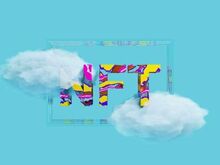Working on NFT projects
Working on NFT projects
Question:
Hello!
I am interested in what services you offer regarding NFT projects. As we currently have two people working on an NFT collection of 10000 NFTs that we are thinking of releasing for sale soon. We want to know how things are going from an administrative point of view. Should a company be created and if so - in the name of both people or just one?
Thanks in advance!

Answer:
Hello,
Unfortunately, the term NFT does not exist in Bulgarian legislation, including tax legislation. Therefore, at the moment it is all a matter of interpretation of what an NFT is and which parts of Bulgaria's laws would be applicable to an NFT. If we proceed from the fact that you create these NFTs (i.e. you are the authors) and your income is from the sale of these NFTs (which are essentially a type of intellectual property), then in reality you realize income from works of science and art.
Carrying out a commercial activity, which is any activity carried out at one's own risk with the aim of making a profit, implies registration of some form as a trader. In theory, since two people are doing this activity and the profit is shared, you should set up a limited liability company (LLC). This is the purest and most accurate form in which you can legally arrange your business relationships. In practice, there are other options in which two persons can work together, but with them, the honest and fair settlement of business relations becomes more complicated and sometimes goes beyond the scope of documentary justification. (for example, the company may be in the name of one of the two persons, and the other person may be employed on an employment contract, or the two persons may work as self-employed persons and half of the work and income may go through one person, and the other half through the other) .
The main differences between a company and a self-employed individual are:
From a tax point of view, things look like this:
- in the case of self-employment, you declare the amount of income for the year. From the amount received in this way, you deduct 40% of legally recognized expenses (we assume that you are the authors of the NFTs in question) and the insurances paid during the year, and you owe 10% tax on the amount received in this way.
- with an EOOD, you declare the amount of income and expenses related to your activity. If the income is more than the expenses, then you make a profit and this profit is taxed at 10%.
From an insurance point of view, the situation is as follows:
- if you are self-employed, you are insured monthly, and accordingly you must declare and pay insurance every month, and the minimum insurance income is currently BGN 710.00, which means minimum insurance in the amount of BGN 197.00 per month. At the end of the year when the annual tax return is submitted, an adjustment is made. In this equalization, the realized income during the year is considered. If its amount exceeds the amount on which you were insured, you must add insurance on the difference. The amount on which insurance is paid on an annual basis cannot be higher than BGN 40,800.00 for the year 2023.
- with an EOOD, the insurance contributions are again paid on the minimum insurance income for the year - BGN 710.00, the difference being that there is no annual equalization of the insurance contributions.
I.e. purely from a tax and insurance point of view, you will need to assess and make some kind of plan as to what income you expect to receive and what expenses you would have. Only in this way would you be able to determine which form of activity is economically more profitable (ie you would pay less tax and insurance).
Apart from the differences from a tax and insurance point of view, there are also several purely functional differences:
- the money you earn as a freelancer is actually your money and you can "spend" it whenever and on whatever you want. With an EOOD, the money the company makes stays with the company. If you want, as the owner, to have this money available, there are several options - to give yourself a salary, to give yourself a loan, or after the financial year is over and the company, if it has made a profit, you will be able to distribute the profit as dividend (but you will have to pay an additional 5% dividend tax on this amount).
- only you can work as a freelancer, i.e. if you expand your activity, you will not be able to hire additional staff. With an EOOD, this limitation does not exist, and in case of possible expansion of your activity, you can safely hire staff.
- if you exercise your activity as a freelancer, you will not have the obligation to issue a receipt when receiving cash. For an EOOD, this exemption does not apply and if you receive cash, you will need to have a cash register previously purchased from which to issue cash receipts. (specifically in your case this hardly matters)
- in order to register as a self-employed person, you need to provide a diploma or some other certificate with the set of documents (application and declaration) certifying your competence to provide the services you will perform. The registration itself is carried out by the Bulstat Register within 24 hours, and there is also a state fee of BGN 10.00. To register an EOOD, the procedure is a little longer and more complicated. To begin with, a set of documents is prepared (constitutional act, minutes of the founding meeting, management contract, several declarations and a sample signature). Some of the documents are notarized. After that, you need to find a fundraising account in a bank of your choice, to which you can deposit the initial capital. The minimum is BGN 2.00. The import note for the paid-in capital, together with the other prepared documents, is submitted to the Commercial Register, no later than 7 calendar days from the date of the founding act, and the registration takes place within 7 working days . The state fee is BGN 110.00. The notary fee will be BGN 6.00, and the bank fee will depend on the bank you choose, and it will vary from BGN 10.00 - 50.00.
We hope we have been helpful!
Greetings!




